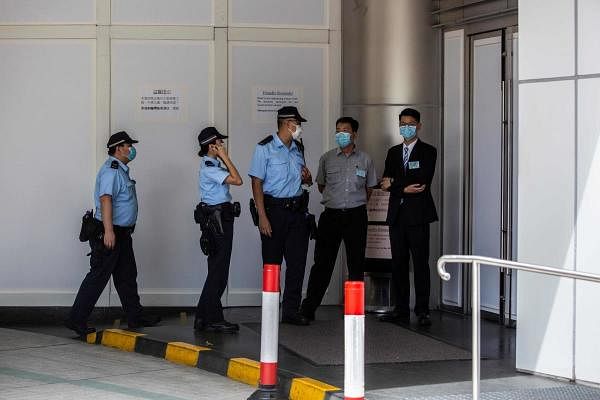
Hong Kong police have raided the office of a prominent opinion pollster that was helping the city's pro-democracy opposition to conduct a primary election, a director of the group said Saturday.
The overnight move came days after China imposed a sweeping new national security law on the financial hub after months of civil unrest last year.
Robert Chung, president of Public Opinion Research Institute (PORI), an independent pollster that regularly conducts surveys on public opinion, said officers copied files from computers, monitored by PORI's attorney, but did not remove the machines.
Police claimed they were responding to a report that PORI computers had been hacked, resulting in an unlawful leak of personal information.
Chung said he got a "verbal promise" from the police that they would not use information unrelated to the suspected leak.
PORI has helped the pro-democracy camp to design a voting system for its primary over the weekend to select candidates to run in the city's legislative council election in September.
Chung said the primary voting system was safe and its operation was legal and transparent.
"The primary election is a peaceful, rational and non-violent approach to express public opinion," Chung said.
Former pro-democracy lawmaker Au Nok-hin, who was helping to organise the weekend vote, said he believed police were attempting to interfere with the workings of the opposition.
"The incident is very likely related to the primaries and meant to create a deterrent effect," he said in a statement.
Voters could cast their ballots from noon Saturday across the city. Long queues were seen in multiple districts outside polling stations.
The independent pollster regularly conducts surveys gauging public opinion on the popularity of the government, top officials and police.
Public trust in both has plummeted since the months of occasionally violent political protests that rocked Hong Kong last year, prompted by a now-shelved bill that would have allowed extraditions to authoritarian mainland China.
The latest poll from PORI released Friday found that 61 percent of respondents believed that Hong Kong was no longer a "free city" since the introduction of the national security law last week.
Opponents say the legislation -- which sets out new penalties for "subversion" and other offences -- undermines the liberties guaranteed to the city in a 50-year agreement signed when Britain handed back control of the city to China in 1997.